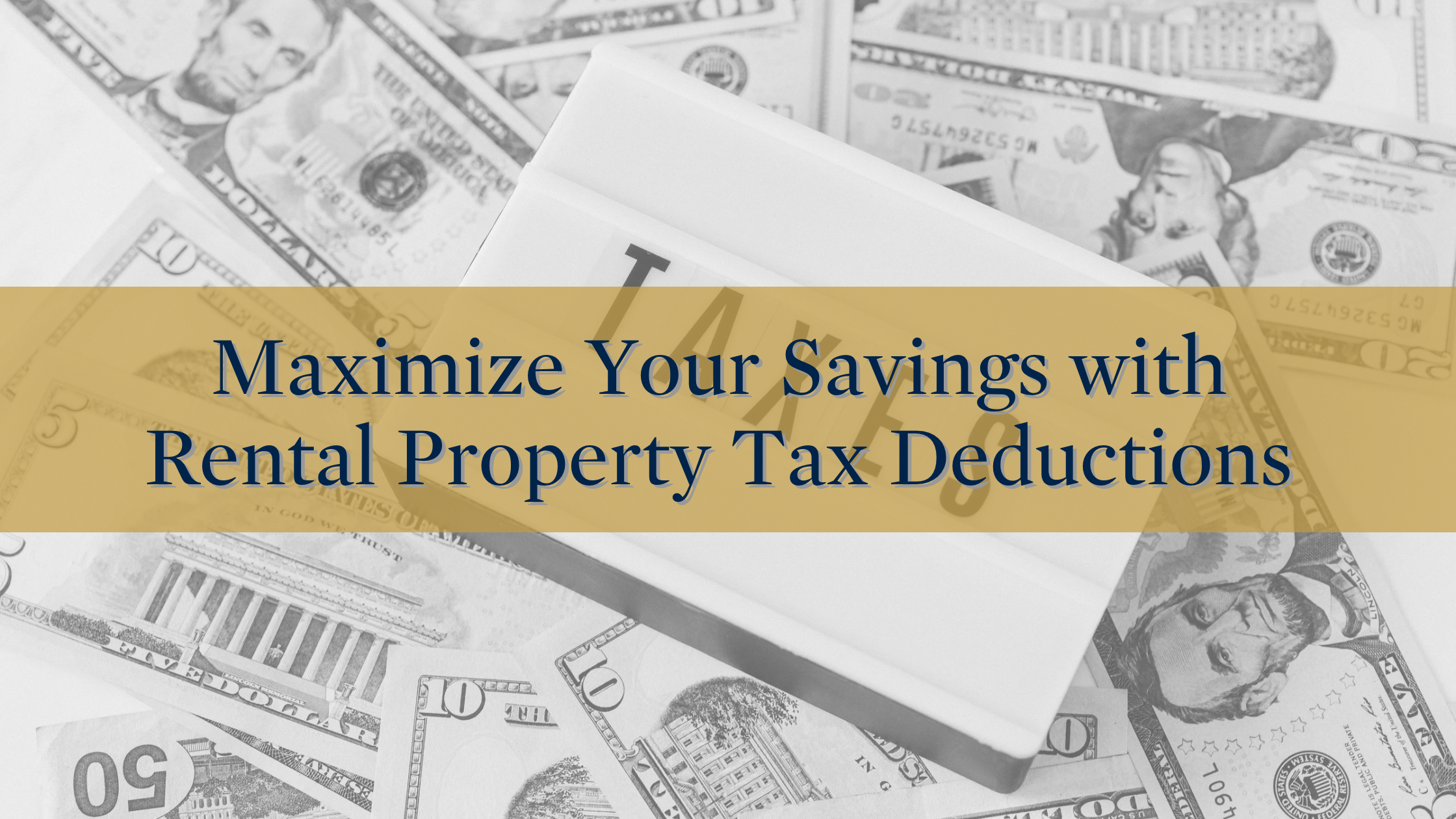
Owning rental property can be a great way to generate extra income, but did you know that it also comes with certain tax deductions? It’s true – rental property owners can leverage the tax code to their benefit and maximize their savings. In this blog post, we will break down some of the most common rental property tax deductions and how they can help you save money.
Depreciation Deduction
When you purchase tangible assets, such as rental properties or other structures, those assets naturally decrease in value over time due to normal wear and tear.
The IRS regulation of depreciation allows property owners the opportunity to gradually write off a portion of their asset’s original cost each year until it is fully depreciated and worthless. This can offer tax savings for investors that hold onto real estate long-term; however, not all investments are eligible – land does not qualify for this type of deduction!
Depending on your specific investment situation – whether an existing home is ready-to-rent vs. renovating a fixer-upper first – timing plays an important role when one can begin claiming depreciation expenses related to the project.
- Rental: 27.5 years
- Fences, driveways, & landscaping: 15 years
- New appliances, flooring, & furniture: 5 years
Mortgage Interest Deduction
Suppose you have taken out a loan to purchase or improve your rental property. In that case, you may be eligible for a mortgage interest deduction. This deduction allows landlords to deduct any interest payments made on their mortgages from their taxable income up to $1 million in debt ($500k if filing separately).
However, remember that this deduction only applies if the loan was explicitly used for purchasing or improving real estate used as a rental property; loans taken out for personal use are not eligible for this deduction.
Property Taxes
When you purchase a rental property, you have to pay property tax on the property. This is an ongoing expense of ownership. However, you may deduct the local property tax on your rental(s).
Repair & Maintenance Expenses
Another common deductible expense is any money spent on repairing and maintaining your rental properties. This includes things like painting walls, fixing plumbing issues, patching holes in the roof, etc..… any expenses incurred while performing necessary repairs or maintenance work on your rental properties are eligible for deductions from your taxable income.
Just make sure that all expenses are documented and reported accurately so that you don’t run into any issues with the IRS when filing taxes!
Insurance Premiums
Regarding rental properties, insurance is a necessary expense that owners should not overlook. Fortunately, they can deduct the premiums for one year in any given period. In addition, different types of coverage, like fire protection, theft prevention, and liability, are all viable options that may even provide reimbursement for unforeseen casualties or thefts.
Additional Deductions
The five deductions we discussed are the most common; however, a few options might also be worth looking into.
- Professional Services: You may be able to deduct the cost of those who help you manage your rental.
- Advertising: You may be able to deduct costs associated with advertising that your rental is available.
- Supplies: You may be able to deduct supplies you use for repairs or maintenance.
- Utilities: If you, as a landlord, pay utilities, you can deduct them.
- Office Space: You may be able to deduct the space where you work on your rental business.
- Travel: You may be able to deduct local and overnight travel expenses for maintaining/managing your rental property.
Depreciation, mortgage interest deductions, property taxes, repair & maintenance expenses, insurance premiums, and additional deductions are all viable options for reducing your taxable income. Be sure to consult with an accountant or tax adviser to ensure you take full advantage of these deductions in the most efficient way possible!
Landlords must understand the applicable laws regarding rental property deductions and adhere to them to comply with the IRS. With a good understanding of these deductions and some proper tax planning, rental property owners can save significantly on their taxes.
Take advantage of all the financial benefits of owning rental property, and ensure you file your taxes correctly! With a little bit of knowledge and planning, you can maximize your returns on rental properties.




